I believe in talking about ideas that matter and can help people lead better lives. It’s hard for me to think of anything that fits that description more than the issues this video deals with.
I’ve done my best, but I know it won’t be perfect. It’s not meant to be. I just want to begin the conversation in our community. I look forward to learning more from all of you as I go . . .
Let’s Continue the Conversation.
Tap to Subscribe . . .
Hey everyone. I wanted to set some context for the video that you’re about to watch, the purpose of which is to open up a conversation about male violence towards women and the kinds of everyday issues that women face when it comes to male behavior. This video was shot initially as a response to something that has been transpiring in the UK. Earlier this month, a woman, Sarah Everard, was abducted and murdered in London, and it began a nationwide conversation around the challenges and the issues that women face when it comes to men. So as you watch this video, you will no doubt sense the tone of it is really a reaction to that debate that was going on and even conversations that I’d—before I shoot a video like this, I have many conversations—I’d talked with women that are very close to me, the women in my company, to really understand what was going on for people during this.
So understand as you watch this video, it was shot in the heat of that moment. And that’s why we sat on it for a couple of weeks. We shot this a couple of weeks ago and Jameson and I sat with it because we didn’t want it to be reactionary. And we certainly didn’t want it to be a form of a virtue signaling or point scoring simply because something was fashionable to talk about in that moment. But having sat with it, we believe just as deeply, if not more so, that these issues are historic, and they’re timeless, and they need to be talked about whether the news cycle brings our attention to it or not. So I hope this sparks conversation for us all. This isn’t designed to be any kind of a final say. I’ve not been perfectly pitched in this video, I’m sure. I’m sure I’ve been clumsy or heavy handed in parts of it, but I hope that it does begin a conversation, which is the intention of it.
With that said, here’s the video. I look forward to reading your thoughts.
*********************************************************************************
So much to say in this video. I’ll get into it, because I don’t know where to start it. The murder of Sarah Everard has been this morbid, disgraceful, disturbing event that has sparked a widespread conversation about male violence towards women—and an even bigger conversation, outside of that, are not just direct male violence towards women, but the ways that men continue to make women feel, through their behaviors and the things that they do.
What we’ve seen over the last week is a big conversation start and then a roadblock that gets put in place when a hashtag like #NotAllMen starts to be put at the end of men’s posts because they’re desperate immediately to assert that they’re not part of the problem, that it’s not them who are responsible. And of course it’s extremely easy at that point to say we’re not responsible for someone who is a murderer or a rapist. To put us in the same category as them is a disgrace. And that becomes fuel for that argument #NotAllMen.
This is obviously seen immediately as a slap in the face by women who see it as just another moment when men, instead of listening and understanding what it is to be in that situation, what it is to have lived a life of constant acquiescences, constant maneuvering around the habits, the tendencies, the actions of men, constant living at a level of alert and hyper-vigilance for anything that could happen, even if it doesn’t happen . . . That instead of men listening to this, they’ve made it about them. They have halted the conversation before it’s even had a chance to begin because they’ve been too busy making sure that they’re not at fault to hear how half of the population is actually feeling.
Sometimes I think of these macro conversations as a representation, on a macro level, of what happens in a relationship between a couple—that it’s like person comes along and says that, “Something has really upset me today.” And the other half of the couple starts by saying, “Well, it wasn’t me.” And this person’s thinking, “Did you hear what I just said? I’m saying there’s something that’s deeply affecting me and always has perhaps. And your first response to that is, ‘It wasn’t me'”.
I, in this situation, try to do what I do in all of these kinds of situations, which is before I talk about it, I try to have as many conversations as I can with people who are actually affected by it, because true empathy is, in my opinion, the root to change. Empathy, unfortunately, is a word that gets stripped of its meaning, stripped of its potency, but if we can return to what is an extraordinarily powerful word in its origin and say, “How do we get to a place of greater empathy?”
And I can tell you, I’ve spent 14 years working with women in my career. And, still, this week having conversations with women that are targeted around this very specific area has bred more empathy in me, because I’m reacquainted with the futility that women face in dealing with these things. And by the way, let me just make this very clear: This is a video that’s for everyone, but I’m addressing my brothers, my fellow men here in this video. This is not a video where, ladies, I’m asking you to do a single thing, but perhaps share this with more men in your life. And I will also say, this is not a video where, for the men watching, I’m not coming to you on a pedestal in any way, I’m not coming to you righteously. I’m coming to you as a companion on this journey, because this is not a time for a certain group of men to stand up and be all righteous and use it to virtue signal about how great they are in comparison to other men. That’s theater.
What I want is a genuine dialogue, a genuine conversation, where we can explore what it really is like for our sisters out there, for our mothers out there, for our daughters out there, for our female friends and colleagues who are dealing with this every day. And how futile . . . This is the word that keeps coming up in one way or another, is just the sheer maddening nature of this, the “What do I do? I’ve spent my whole life dealing with things that I rarely even bring up to the men in my life, they’re so every day.” The banality of it—that’s the crazy part is the banality that the women who speak to me have as a tone in talking about being followed, in talking about having people shout things across the street, “Hey, gorgeous,” or being groped on a train, on a crowded train, or having their drink spiked, or being spoken to aggressively, being yelled at by men. And when they stand up for themselves only finding that it fuels the flames of this. And now all of a sudden they’ve got someone who’s not just shouting at them, but making genuine threats.
You hear all of these problems and they will readily admit there’s all these problems, but I don’t have any idea how to solve it. Because how do you solve it? How do you solve that feeling of walking past a guy and he gives you a look or he does something or he says something and you’re on hyper alert and you tense up and your adrenaline spikes because you have no idea which way this could go. And is it someone with good intentions or is it someone with the worst intentions? And if it is someone with the worst intentions, what’s my escape plan? How do I get out of this? Just having to think that way and knowing that if you stand up for yourself, it could only make the situation worse and may even be likely to make the situation worse.
That leaves women in the most extraordinary bind. It’s not just walking home at 2:00 a.m. “Oh, you shouldn’t walk home at 2:00 a.m.” No, walking home at any time of day and finding yourself on a street with the wrong person with no one around—or with everybody around and no one doing anything. With, “Whoa, you shouldn’t walk the street. You should get a car home from work.” Well, maybe I don’t have the money. And if I do have the money, what service do I use, where I’m likely to be getting in a car with a man I don’t know, hoping that he has good intentions? So where is the escape from that fear?
And men, if we want to understand this, we need only imagine a scenario where we walk out onto the street and someone comes up to us and says, “Can I ask you a question?” Now, I want you to imagine that same scenario, but the person who comes up to you and says, “Can I ask you a question?”, has a gun in their belt. Now I ask you, honestly, men, does that produce a different mood for you? If someone approaches you asking, “Can I ask you a question?” One of them has a gun in their pocket. Now, the gun’s not pointed at you, so it’s not like that threatening to shoot, but you know they have a gun. Does it change the mood? Does it change the spirit of the conversation a little bit knowing they have a gun. Knowing that in this situation there is something on their person, there is something they have that makes them a much great a danger to you than you can be to them in this moment. That’s the experience of women every single day.
Now, I truly believe most men have good intentions. I believe this. And that’s why so many men speak up and say, “Not all men.” Because they’re frustrated at the things that are being thrown around about men and the accusations being made about men and their attitudes towards women or how they make women feel, when many men associate with having done right by women in their lives. Which doesn’t mean they’ve always got that right, by the way. And that’s another thing we have to talk about is sometimes we think we’re getting it right and we’re still getting it wrong. But I know that there’ll be a lot of men out there that feel they’ve done it right or they’ve done a pretty good job and they’re being associated with the worst types of men.
But what we have to understand as men is that your good intentions don’t take away the gun that women see in your belt when you come over. And we may never actually be a threat in practice, but it doesn’t mean that a woman can tell the difference in that moment. There’s still the possibility of someone going into hyper alert because the danger is there, because it’s a possibility.
And so I look at this whole thing and I say, everything that we do on this channel, in my work over 14 years has not been just about outlining a problem, but what practical thing can be done? Insight meets practicality. That’s been my whole brand over time.
Us, as men, can do three things that can actually make a difference. And I’m not talking here to the guy who is on the end of the spectrum, where he is going out of his way to be a pig to women, to harm women ,and has the worst intentions. This video isn’t changing that man. This is for everybody else.
The first thing we can do is look at ourselves and ask, “In my everyday life, am I doing things that would make someone else feel uncomfortable?” I’ve had moments where I’m walking down the street and I’m coming home from the gym in a hoodie and my hood is up. And I see someone coming from the other—man or woman—I see someone on the same side of the street as me and we’re the only two people on the street, and as I get closer, or before I get too close, I’ll pull my hood down. Now, I know I’m not going to do anything bad to this person, but they don’t. And taking my hood down in that moment is just my way of saying “I come in peace. There’s nothing you need to worry about.” We can all find ways of making other people feel more comfortable.
Look, we as men, we’re in a difficult situation these days. We are. We want to meet someone. We have dating apps for that, but we’re also being told that, “Oh God, I wish a guy would just say something to me in real life.” Or “I wish I’d just meet someone in a real setting and not on an app. I’m sick of these apps.” Women will say that, but then men are left with the predicament, “I need to approach a woman in real life. Apparently that would be the sexy thing to do. But at the same time, I’m trying my best not to come across as a predator, as a sleaze, as someone who’s going to, at the very least make her feel awkward and at most make her feel threatened.” The navigation of that has become, it feels borderline impossible. I get that.
But what we can do do is say to ourselves, “Okay, I know that in my life I would like to talk to women. I would like to approach someone now and again that I think is attractive.” But our first priority has to be someone else feeling comfortable, feeling safe. That has to be priority number one.
Firstly, just because somebody attractive walks into a room, we are not entitled to their time or their energy. Now, we can open a door to a conversation and see if that person walks through that door. When you want to approach someone, how much are you paying attention to the context of the situation, to what might make them feel at ease or comfortable? Could you ask a question about something that’s going on in the room or make a conversation that just feels like good conversation? Or, even if you want to give someone a compliment, what compliment would put them at ease and not make them feel immediately sexualized? How can I give someone their space? Furthermore, how can I let this person know that I exist whilst allowing them to continue in whatever they’re doing anyway and not making it so that if they don’t want to continue the conversation, they’re the one that has to leave, that they’re the one that has to create space again?
Women will all relate to having been approached, whether they’re going for coffee or they’re just in a shop or they’re on the street or they’re sitting on a bench, and feeling like in order to now get away, they’re the one who has to leave. But they were the one who was there. Because men aren’t giving them space, because men are approaching and making it uncomfortable if it doesn’t go their way.
We don’t have to master being a smooth operator when it comes to approaching women, but we do need to get competent at making people feel comfortable even when we want to take a small risk. We have to be aware of ourselves. And it goes beyond having good intentions. It’s focusing on how our behavior plays out in practice and how it actually affects somebody.
The second thing we can do is to be an ally in the room. When we see women feeling uncomfortable because of something that’s going on, when we see that something that’s happening could either be genuinely threatening or just making them feel uneasy, that we show we’re an ally in the room wherever we can without that becoming . . .this is the tricky part, because that could easily turn into something that seems weird or seems like we have an agenda in going over there. But I believe if you’re coming from a place of sincerity and genuine care and authenticity, that we will be able to convey that. So if we see something that could be making someone uncomfortable, just checking in with someone and saying, “Are you okay? I can see there’s a situation here that might make you feel a little uneasy or might be a little strange. I’m over here if you need me.” Or, “If there’s anything I can do, please let me know.”
This doesn’t mean the movie version of going up to the men who are creating the issue and standing up to them and being the guy who stands up to the bully. We know, as men, that we’re no strangers to male violence as men. It’s different, but we’re no stranger to male violence. We’re no stranger to male intimidation or how quickly things can escalate between men and how dangerous that can be for a man. So this isn’t me saying that your job is to go and approach every bully in the room and shut him down. That could be dangerous for you. But you can ignore that person and still go and stand with the person that you’re worried may be being affected and show that you’re there. One thing that seems evident to me is that there would be a lot of women that would feel less mad towards men in general if they felt they were their allies.
The third thing us men can do is listen. And listening means seeking to understand without rushing to being defensive. And I’m not minimizing how difficult this is, because in any argument, let’s remove the dynamics of this particular issue from the situation, any of us, men or women, struggle when we’re criticized. We all have a tendency to immediately rush to defend ourselves. And that’s our ego talking. But men, we have to recognize that our ego is our enemy in this conversation. And that what has to come forward is a genuine, pure, loving, compassionate desire to help women, to make them feel safe, to help them feel like they have allies, that they’re not alone, whether it’s on the street or in this conversation.
I’m not someone who easily buys into different self-development philosophies that can get a little bit out there for me. If you followed me for a while, then you know that I’m a practical, logical, rational humanist, and that I don’t tend to speak in flowery language. But what I do believe is that every human being on this earth is just layers of conditioning and habit and biology and genetics built on top of just a core consciousness, a core essence, and that . . . You know, in the movie Soul, the new Pixar movie, there are all the little blue beings that have not yet been sent down to earth to occupy a body. And at that stage, they are just this essence, this being that hasn’t taken any fleshy form yet. And then they go down to earth and they inhabit a body. Well, I truly think of life like that, that we are all just consciousness, an essence. And every single one of us woke up on this earth one day, having not chosen the body that we woke up in. We didn’t choose our genes. We didn’t choose our biology. We didn’t choose the part of the world we were born in. We didn’t choose the color we were born in. All of that we just woke up into. The only difference is that 50% of those beings woke up in a body that have begun with a whole set of challenges that the rest of us don’t have to face. Not caring about the experience of women is a version of not caring about ourselves, because there’s a version of life where we woke up in that body, through no choice of our own, but had to deal with those challenges. And think what we would want, the support that we would want, if that were true.
We have to be there for each other. And there is no perfect solution to any of this, but fuck would it make women feel safer and more acknowledged and less alone if we actually spoke up as allies. If we actually did what we can to make the world feel like a safer place, whilst acknowledging the reality that there will always be malevolent forces in the world, there will always be men who have the worst possible intentions, but that women can afford to worry a little less when we’re in the room.
I love you guys, and I will see you in the next video.
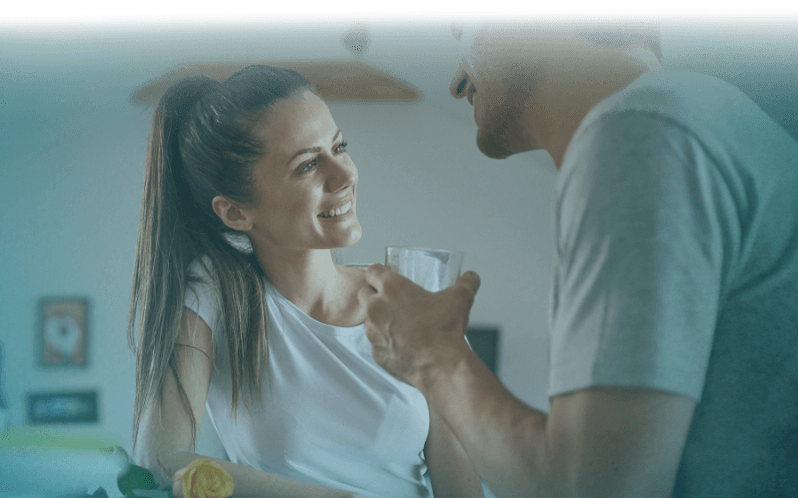



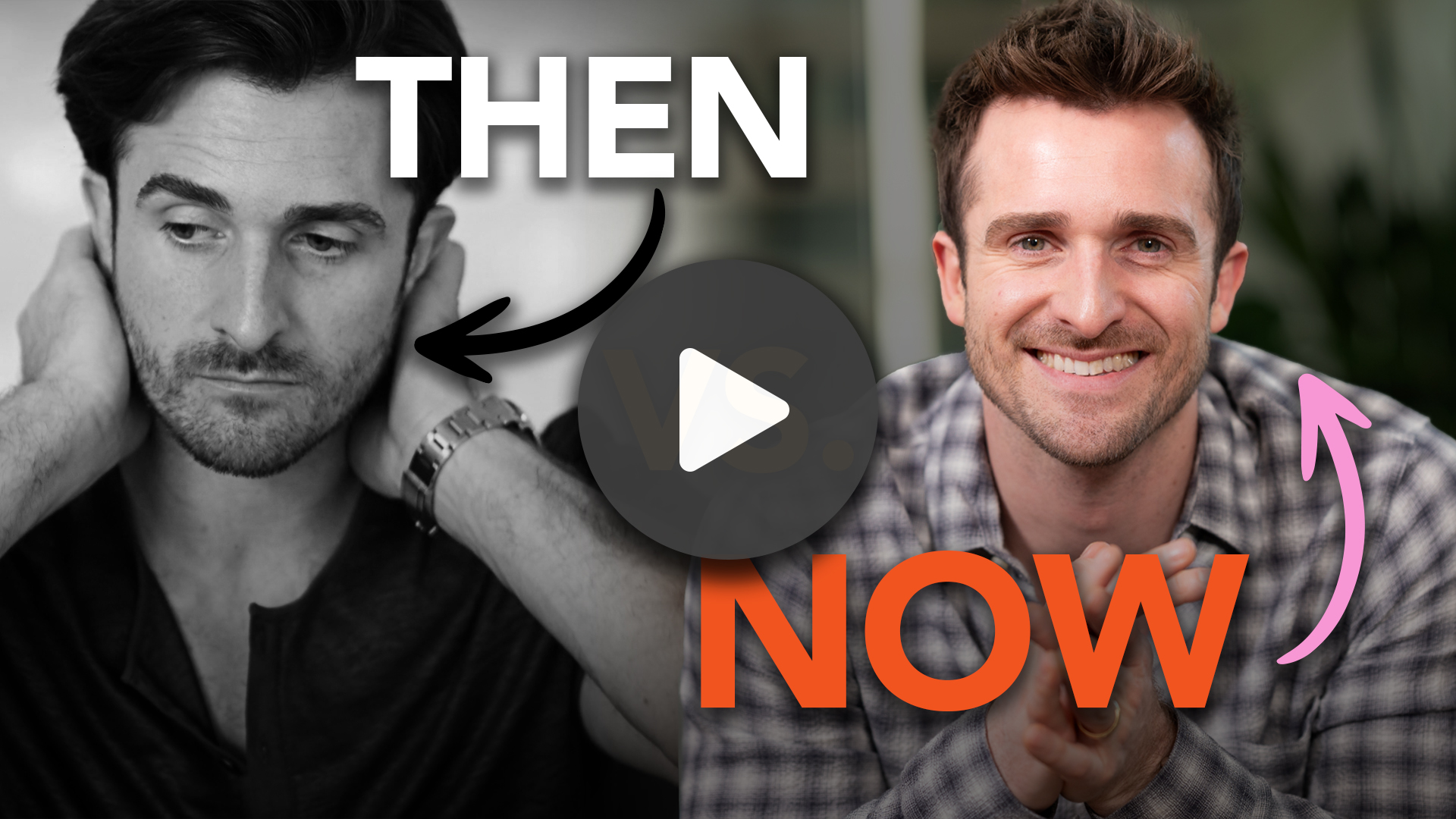
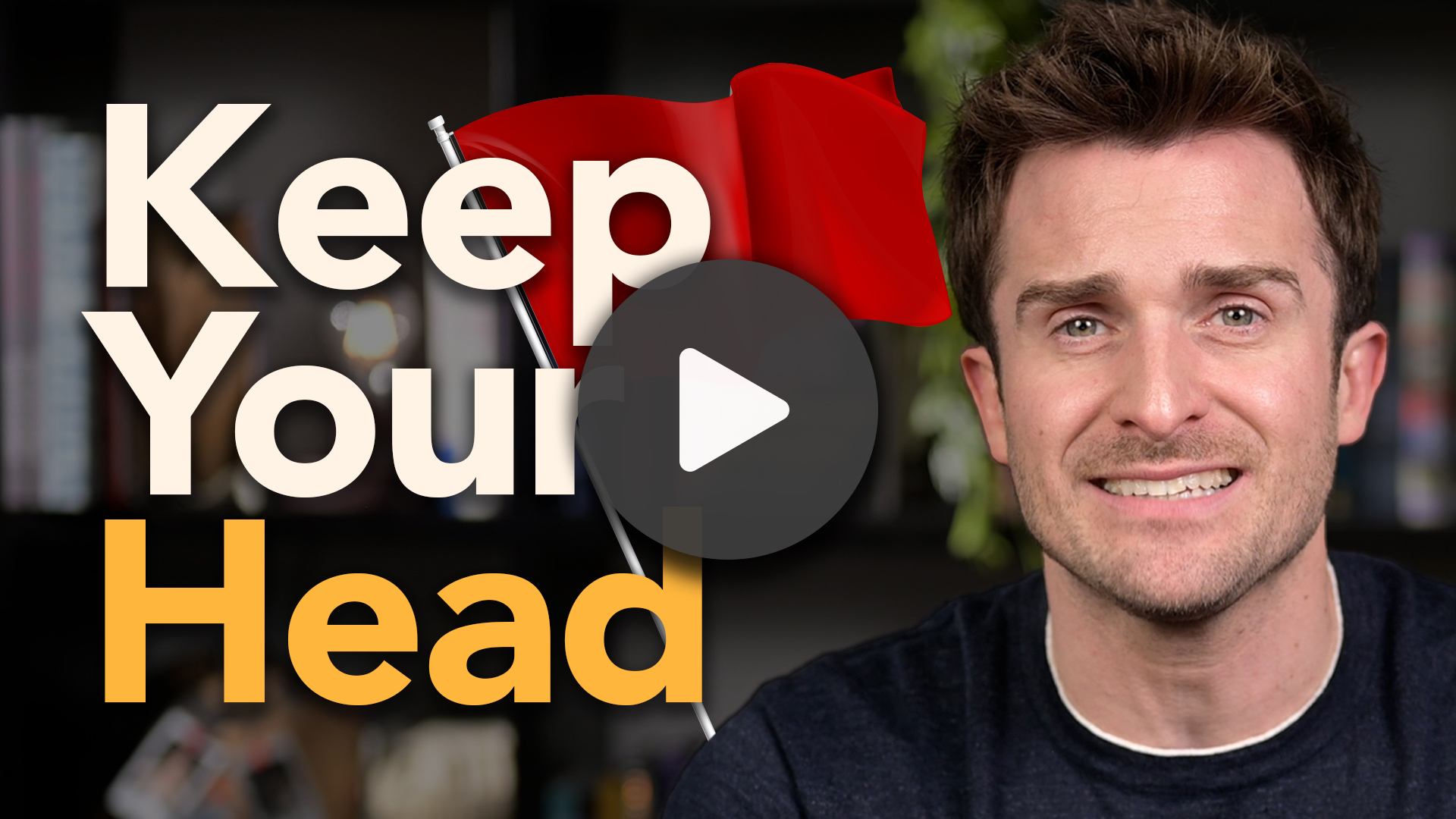

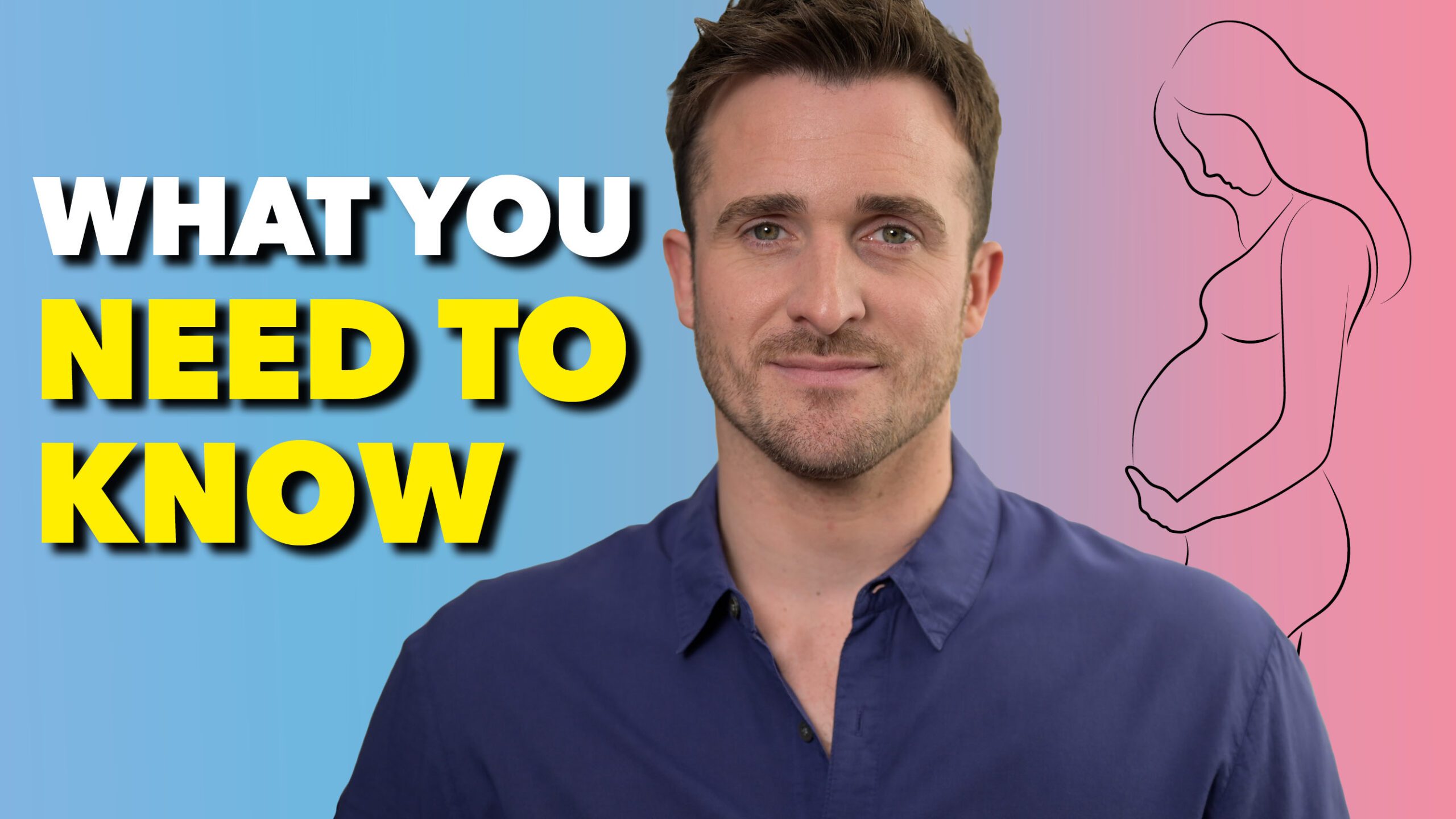
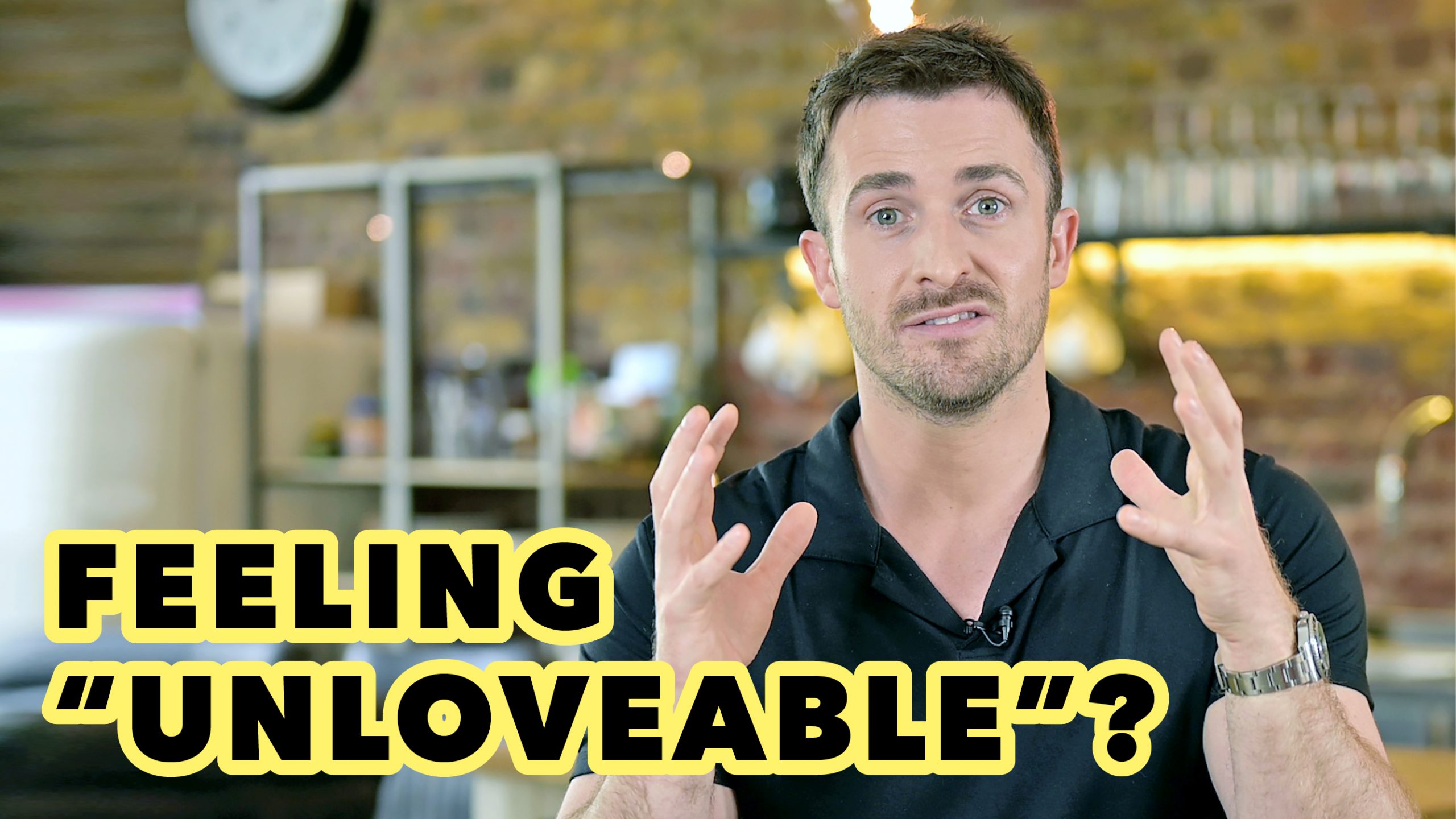





Thank you, thank you, thank you for starting this conversation. I often myself preach about needing the good men, the men who say ‘but I’m not one of “those” men’ to step up and be an ally to women.
The trust for a lot of women has been broken and we need other men to help us repair that or it hurts us all.
The fact that most women I know have a deeply disturbing story about an interaction they’ve had with a man that impacted them very negatively tells me this needs more attention.
We really do need men and society to step up to help us feel at least a little bit more safe when being out in the world.
You said it well when you spoke about women just wanting an understanding of what it’s like to often be fearful.
I do feel that this matter is now in the hands of men, and I hope that they will put ego aside and listen to this and take it in. Thanks again Matthew.
Thank you for making this video. It is a conversation that needs to be started. So many men do not understand the psychological toll that pervades our lives. The sincerity and authenticity that you demonstrated gives me hope that our world can become a better place.
Thank you for this video, it gives me hope that there are men who are actually listening and showing empathy by bringing up solutions to the issue rather than being defensive and playing the victim. If more men can actually reason this way, women will feel less threatened and a little more safe. Thank you
You just made me cry. Thank you!
90% of attack are comited by muslims, and they are only maybe 10% of the poppulation. Listen to Tonny Robinson.
I recently read a really excellent book which touches on many of these issues (and more) – ‘Invisible Women’ by Caroline Criado Perez. Highly recommended for anyone who wants to delve into not only the everyday fears which we experience as women, but the way in which science, medicine, even town-planning or car design, leave women worse off, in more danger, or unaccounted for (e.g. lighting bus stops in less well-frequented urban areas meant that women felt much safer taking buses – but committees of all-male planners never even thought of installing them).
Fantastic video; thank you for sharing.
Matthew, men are reacting with #NotAllMen not because their message is “It wasn’t me” or wish to escape the discussion of the problem. This reaction has a solid reason behind it – men are abused and threatened. Every day. Constantly. Often by women. Men do not feel safe anymore because there is a dangerous agenda that uses tragedies (like that happened with Sara) to limit male human beings in their rights. Your video and discussion have best intentions underneath, however it will be used by certain parties to conduct another message which is ‘Men have no right to be men’. Bad persons are among both sexes. And for the crimes and awful wrongdoings of such people that are minority society punishes majority of men. Nobody mentions, though, thousands of men get killed, raped, abused or simply offended on a regular basis. Women have a strong support from feminist groups and progressive public speakers while men are portrayed as inborn monsters. It’s a tunnel vision again: you see female victims, ignoring male ones.